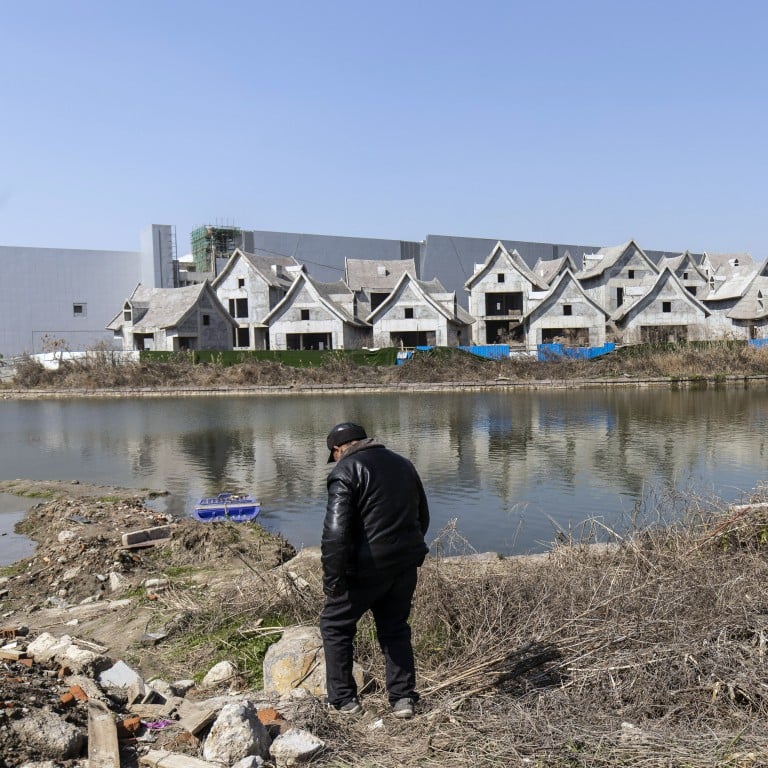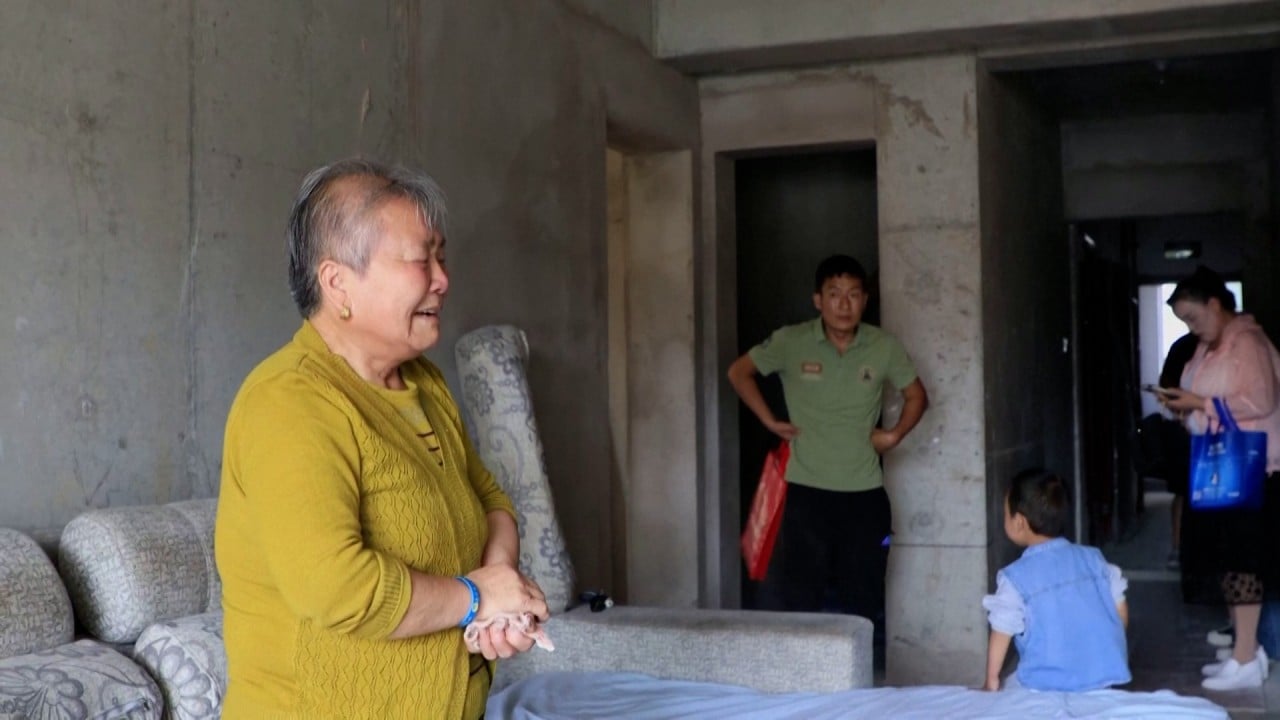
Why 1 couple’s interrupted Chinese property dream hit a nation’s nerve
- Liangliang and Lijun’s Chinese dream fell apart when construction on their new home stopped, a pandemic pay cut made things harder and they had to leave the city
- Their videos resonated with many young Chinese who had seen the same dream end in disappointment, as the country entered an economic downturn
The first video that Liangliang and Lijun posted on Douyin, the Chinese version of TikTok, was just eight seconds long. The couple in their 20s stood shyly with a line of property agents. As they counted down, the agents pulled on handheld poppers, raining confetti on the couple, and yelled: “Congratulations!”
The couple had become the 5,269th homebuyer at Sunac China Holdings in Zhengzhou, Henan province. That was November 2021, eight years after they met, two months from their wedding and 11 months from the birth of their daughter. But in May 2022, the developer would become indebted and halt construction.
Liangliang, or Zhang Yiliang, and his wife, Dong Lijun, had seemed no different from many of their peers. On their Douyin account, they completed viral dance challenges and recorded their daily lives – buying new glasses, going to the hospital, cooking a meal at home.
They started to build a large following in December 2021 after Dong posted a video, crying as she said her pay had been cut to just 2,000 yuan (US$280) a month. The couple had a combined income of about 9,000 a month, with most of it – 6,293 yuan – going to pay the mortgage.
In one video, she came home from work looking sad, saying she had wanted to buy meat for her husband’s dinner but switched to tofu because of her pay cut. It was the height of the Covid-19 epidemic. Many had suffered similar misfortunes – their companies had gone bankrupt, they were struggling to live in the big cities.
When the couple visited the construction site again, work had stopped on the building. They went to Sunac to ask for the 20,000 yuan rebate it had promised to attract potential buyers, which the couple said was still owed to them.
After months of visits to the developer, conflict erupted and Liangliang said he was beaten up. On November 22, they posted a new video of themselves packing their belongings in their rented flat. “We are ready to go back home,” they said. In response, one netizen said they had lost the “spark” in their eyes, a comment that went viral.
Liangliang and Lijun’s story started out as the typical Chinese dream. They worked hard to get into university, to settle in a big city and save enough for a down payment. They kept up the mortgage payments even after construction stopped – they did not take to the streets to protest the unfairness of it all.
The past few years have been filled with disappointment for the young in China. When the country finally opened up late last year, people mourned the youth they had lost in the lockdown years. Then quickly, they had other things to worry about.
I see a change in the behaviour of people around me. Many are now cautious about spending money. They have stopped going out to dinner and started buying food and other goods on mass marketplace Taobao. If they travel at all, they choose the cheapest accommodation and pack the sightseeing into fewer days. One friend said she was afraid to quit her job even though she was suffering in it, seeing how it took months for others to find another. China has made promises of economic recovery but it will take a lot more to reboot people’s confidence.
A friend recently changed her goal this year to: “Trying to survive”. She said, on WeChat: “We are all just waiting for the winter to pass.”
Phoebe Zhang is a society reporter with the Post

.jpg?itok=H5_PTCSf&v=1700020945)
